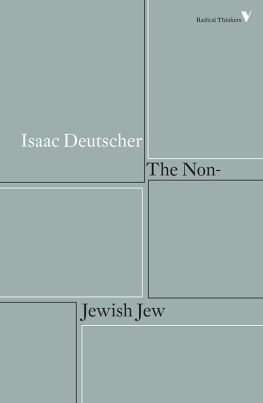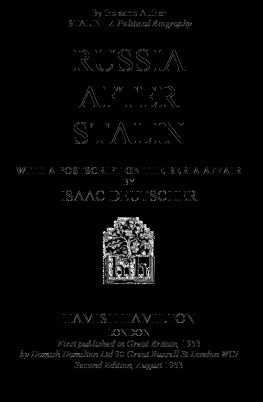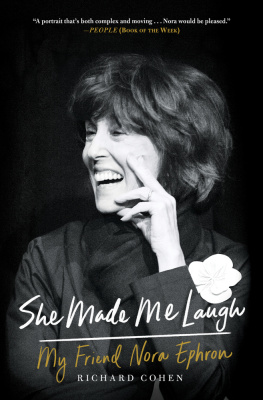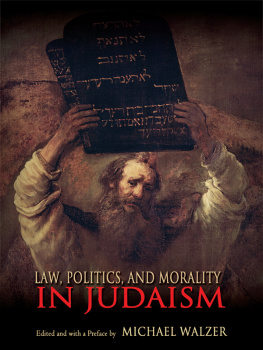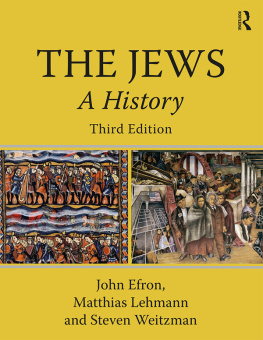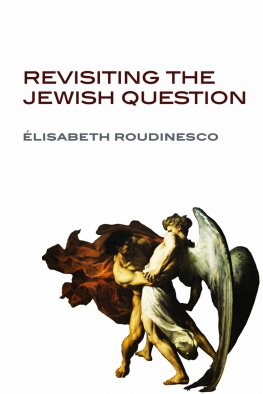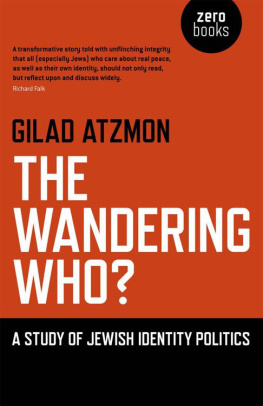THIS volume of essays is published posthumously. Isaac Deutscher, had he lived, would have revised his own work more thoroughly. I have decided to interfere as little as possible with those essays which at one time or another had already appeared in print: here and there a footnote has been added or an excision made. I have taken the responsibility for editing the text of the lecture on The Russian Revolution and the Jewish Problem which was left uncompleted; the essay Who is a Jew? required a more thorough work of selection and compression.
In a collection of lectures, articles, and interviews devoted to one particular subject, though it may be approached from different angles, some overlapping is unavoidable. The reader will be left in no doubt, however, that Isaac Deutscher, in his views on the most complex role and tragic fate of Jews in Europe and in their own national state, remained consistent throughout.
I can only trust that in my work on these essays I have succeeded in preserving faithfully, and in all instances, Isaac Deutschers thought.
I am grateful to Dr. R. Miliband and Mr. D. Singer for reading the volume before it was sent off to the Publisher; to Mr. John Bell and Mr. Dan M. Davin, of Oxford University Press, for assistance and valuable advice; and I would also like to thank my friends and neighbours Mr. and Mrs. E. F. C. Ludowyk for their affection and constant encouragement.
T.D.
ISAAC DEUTSCHER
19071967
ISAAC DEUTSCHERS reputation was made first of all as a poet when at the age of sixteen his first poems were published in Polish literary periodicals. His early verse, still remembered by the scattered remnants of his reading public, has strong echoes of Jewish mysticism, motifs of Jewish history and mythology, and fuses Polish romanticism with Jewish lyrical folklore in an attempt to bridge the gulf between Polish and Yiddish culture. He also translated a great deal of Hebrew, Latin, German, and Yiddish poetry into Polish.
As an extramural student he attended lectures on literature, history, and philosophy at the medieval Yagellon University in Cracow. Evenings devoted to readings of his poems became notable events in the life of this artistic and scholarly Polish city.
At the age of eighteen he left Cracow for Warsaw; he also left poetry for literary criticism, and a more profound study of philosophy, of economics, and of Marxism. About 1927 he joined the outlawed Polish Communist Party and very soon became the chief editor of the clandestine and semi-clandestine communist press. In 1931 he travelled widely in the U.S.S.R., acquainting himself with the economic conditions of the country under its first Five Year Plan. He declined offers of academic positions at the Universities of Moscow and Minsk as a professor of history of socialism and Marxist theory. In the following year he was expelled from the Communist Party.
The official reason for his expulsion was that he exaggerated the danger of Nazism and was spreading panic in the communist ranks. Soon after his return from the U.S.S.R. he had founded, together with three or four comrades, the first anti-Stalinist opposition in the Polish Communist Party. His group protested against the party line according to which Social Democracy and Nazism were not antipodes but twins; and when one day the communist underground papers came out with the headline Danger of Barbarism Over Europe, the chief editor was expelled from the party and excommunicated. From that day two sleuths shadowed him: one employed by the Polish police, and the other a volunteer from the Stalinist party cell.
In April 1939 Isaac Deutscher left Warsaw for London as a correspondent of a Polish-Jewish paper which had employed him for fourteen years as a proof reader. It was his good fortune that, when the war broke out and he was cut off from his income, a Yiddish newspaper in London rejected his contribution. This compelled him to apply himself with the utmost energy and zeal to learning English. Flanked by dictionaries, grammars, and textbooks, he wrote his first article in English and sent it off to The Economist. It was published the following week and from that time his contributions appeared regularly.
In 1940 Isaac Deutscher joined the Polish Army in Scotland, but most of his army life was spent in the punitive camps as a dangerous and subversive elementthe return for his unceasing protests against the anti-semitism rampant in that army. Released in 1942, he joined the staff of The Economist and became its expert on Soviet affairs, military commentator, and chief European correspondent. He also joined the staff of The Observer for which he became, inter alia, a roving European correspondent writing under the pen-name Peregrine.
In 19467 he left Fleet Street and regular journalism for less ephemeral work. Stalin, A Political Biography was published in 1949. Described as the most controversial biography of our time, it went into very many editions and appeared in a dozen languages. The enlarged 1967 edition contains a postscript on Stalins last years.
The publication of Stalin led to the recognition of Isaac Deutscher as an authority on Soviet affairs and the historian of the Russian revolution; his Trotsky trilogyThe Prophet Armed (1954), The Prophet Unarmed (1959) and The Prophet Outcast (1963)established his reputation also as a master of English prose. His biography of Trotsky is based on detailed research into the Trotsky Archives at Harvard University. Much of the material contained in the third volume is unique, for he received special permission from Trotskys widow, the late Natalya Sedov, to read through the Closed Section of the Archives which, by the will of Trotsky himself, is to remain unopened till the end of the century.
Isaac Deutscher planned to conclude his biographical series with a study of Lenin, and he often expressed the hope that his works would be seen as a single essay in a Marxist analysis of the revolution of our age and also as a triptych of some artistic unity.

